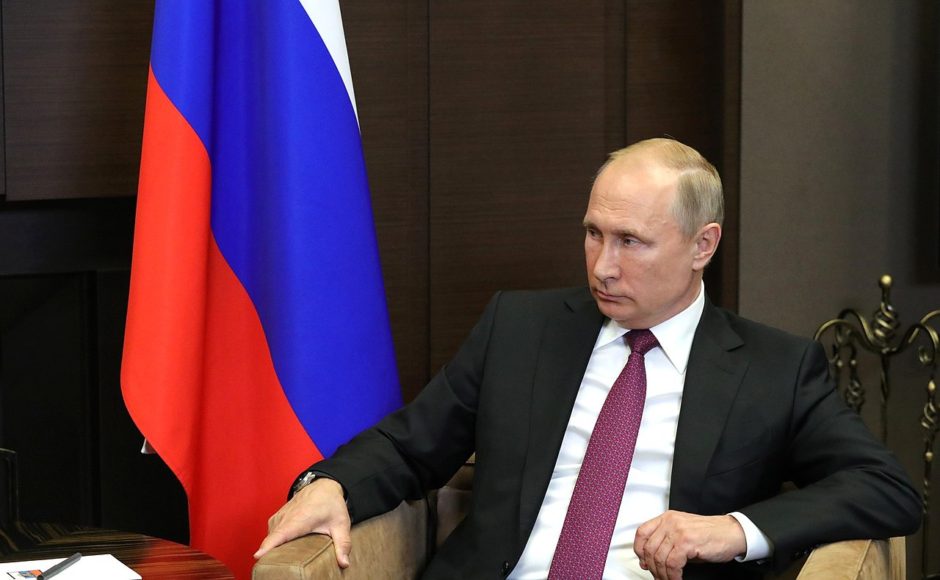It’s safe to say that Israel intends to vigorously enforce its “red lines” in Syria, despite a recent upsurge of tension with Russia, Syria’s chief ally and protector.
In recent days, Prime Minister Benjamin Netanyahu has made it crystal clear that Israel will use force if necessary to achieve four overlapping strategic goals in Syria.
Israel will continue striking Hezbollah convoys hauling Iranian weaponry to its bases in Lebanon via Syrian land routes. Israel will not tolerate the transfer of advanced weapons from Iran to pro-Iranian Shi’a militias in Syria. Israel will bomb factories in Syria that manufacture high-precision Iranian weaponry bound for Syria’s armed forces and Hezbollah. Israel will do whatever possible to thwart Iran’s efforts to entrench itself militarily in Syria.
In pursuit of these overlapping objectives, Israel has carried out more than 200 airstrikes in Syria since 2017, bombing Syrian, Iranian and Shi’a bases and military assets.
At the same time, Israel has gone out of its way to ensure Russia that its ongoing air raids in Syria — which has been convulsed by a civil war since 2011 — do not and should not jeopardize their “deconfliction” understandings.
These understandings were useful in preventing acrimony between Israel and Russia, which has become increasingly embroiled in Syria’s fratricidal war. But on September 17, they were badly rattled when Syrian anti-aircraft batteries accidentally shot down a Russian surveillance airplane following the latest Israeli air raid in Syria.
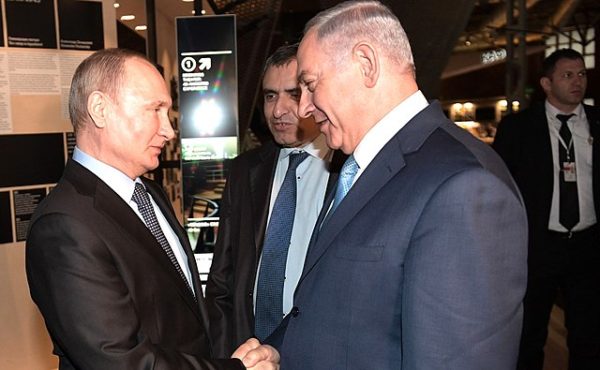
Russia, Syria’s arms supplier, boldly intervened in the civil war in 2015, dispatching aircraft and maintenance personnel to Syria. Since then, Netanyahu has flown to Moscow no less than nine times to explain Israel’s policy toward Syria to Russian President Vladimir Putin. As a result of these meetings, Russia has shown a remarkable degree of tolerance of Israel’s air campaign in Syria, the granular details of which remain murky
Israel rarely comments on its raids, thereby allowing Syria to save face and refrain from taking retaliatory measures. In the main, the Syrian Observatory for Human Rights, a non-governmental organization based in London, issues reports about these raids.
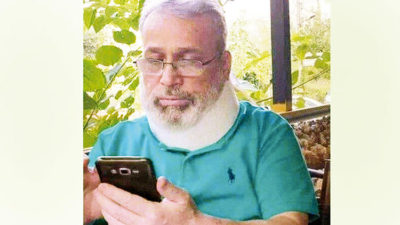
Israel has also targeted high-level Syrians working to enhance Syria’s missile capabilities. Last month, Aziz Asbar, a rocket scientist and a director of the Scientific Studies and Research Center in Masyaf, a major weapons-development facility, was killed by a car bomb. It is widely assumed that the assassination was carried out by the Mossad, Israel’s external intelligence agency.
In general, though, the Israeli Air Force has borne the brunt of degrading Syria’s and Hezbollah’s military power. So far this month, Israel has struck Syria three times. It is nonetheless debatable whether Israel’s raids have had the desired effect. The leader of Hezbollah, Hassan Nasrallah, claimed today that his organization has acquired “precision missiles” in spite of Israel’s airstrikes.
Israeli airstrikes in Syria have been damaging.
On September 4, Israel hit Iranian bases in the provinces of Hama and Tartus, bombing a surface-to-surface missile factory in Wadi al-Uyun. In addition, Israel bombed the Scientific Studies and Research Center.
On September 15, Israel struck weapons-storage facilities and an Iranian cargo plane in Damascus ready to unload weapons to Iranian forces and Iran-backed militias fighting on behalf of Syrian President Bashar al-Assad’s regime. Russian-manufactured S-200 air defence batteries were apparently destroyed during the attack.
Within hours of the strikes, Netanyahu reaffirmed Israel’s “red line” policy. “Israel is constantly working to prevent our enemies from arming themselves with advanced weaponry,” he said. “Our red lines are as sharp as ever and our determination to enforce them is stronger than ever.”
On September 17, four F-16 Israeli fighter jets bombed the Scientific Studies and Research Center yet again, destroying “accurate and lethal weapons” that were to have been sent to Hezbollah. “These weapons were meant to attack Israel, and posed an intolerable threat against it,” the Israeli army said in a communique.
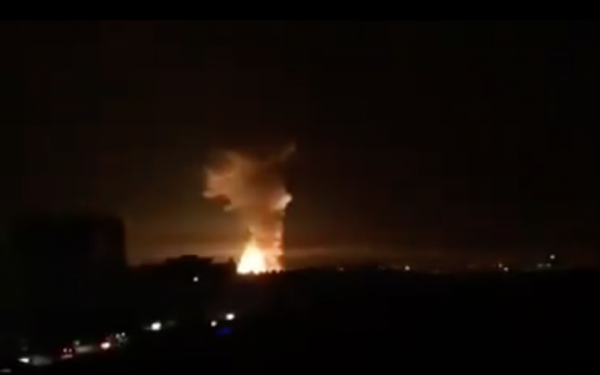
This is the incident that culminated in the downing of the Russian Ilyushin II-20 aircraft with 15 crew members on board. It caused an uproar in Moscow and unsettled Israel’s otherwise cordial bilateral relations with Russia.
Shortly after the latest Israeli raids in Latakia, which is near Russia’s Hmeimeem air base and Tartus naval base, the Russian Foreign Ministry summoned the Israeli ambassador to reprimand him over Israel’s “provocation.” And in a telephone conversation with Israeli Defence Minister Avigdor Liberman, Sergei Shoigu, his Russian counterpart, accused Israel of failing to abide by the “spirit” of its “deconfliction” understandings with Russia.
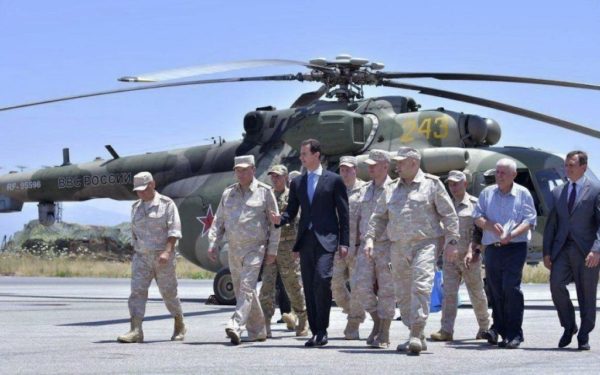
Shoigu, who visited Israel last year, claimed that Israel had warned Russia of the impending strikes only “less than a minute” before they were launched, thereby leaving precious little time for the doomed Russian aircraft to vacate the affected area.
A spokesman for Russia’s defence ministry, Igor Konashenkov, went as far as to issue an implicit threat. “We reserve the right to take adequate measures in response,” he said.
Reacting to these charges, Israel insisted it had coordinated with Russia, pointed out that Israeli jets had already returned to base when the Russian plane was shot down, and promised to “share all the relevant information with the Russian government to review the incident …”
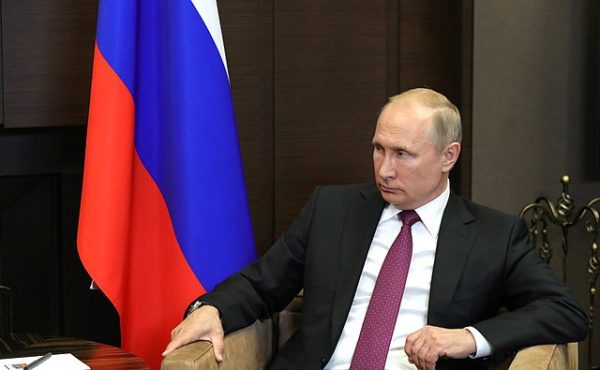
Putin, who maintains friendly relations with Netanyahu, seemed to have defused the crisis on September 18 when he absolved Israel for the loss of the Russian aircraft. “An Israeli jet did not shoot down our plane,” he declared. “It rather looks like a chain of tragic accidental circumstances.”
Significantly, Putin did not draw a comparison between this particular incident and Turkey’s downing of a Russian jet in Syria in 2015, a clash that temporarily damaged its political and commercial relationship with Russia.
Although Putin appeared to let Israel off the hook, he told Netanyahu that Israel had violated Syrian airspace and had breached their “deconfliction” agreement. Putin, urging Netanyahu “not to allow such situations in the future,” announced that Russia was “taking additional steeps to protect our servicemen and assets in Syria.”
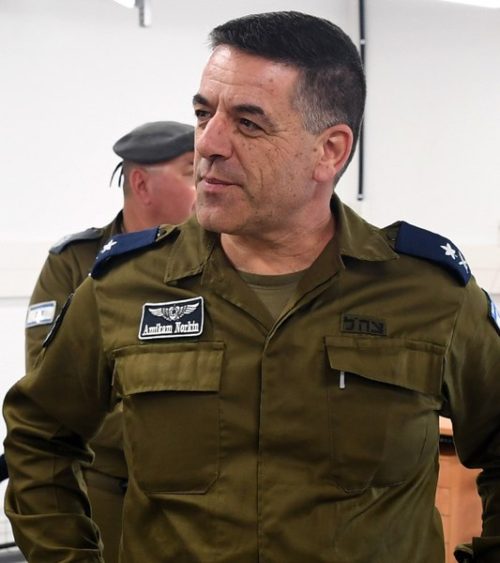
Attempting to mollify Putin, Netanyahu expressed sorrow over the deaths of the Russian servicemen, emphasized the importance of Israel’s security coordination with Russia, pledged to share all information with Russia, and offered to send the commander of the Israeli Air Force, Major General Amikam Norkin, to Moscow to present “all needed information” to the Russians. With Russia’s approval, Israel dispatched a military delegation, headed by Norkin, to Moscow on September 20.
Despite Netanyahu’s contrite comments, the Russian embassy in Tel Aviv today blamed the Israeli Air Force for the the mishap: “Moscow views as irresponsible and unfriendly actions of Israeli Air Force, which exposed Russian Il-20 aircraft to danger and led to the death of 15 servicemen.” In line with this accusation, the Russian Foreign Ministry demanded “further inquiries and explanations” from Israel.
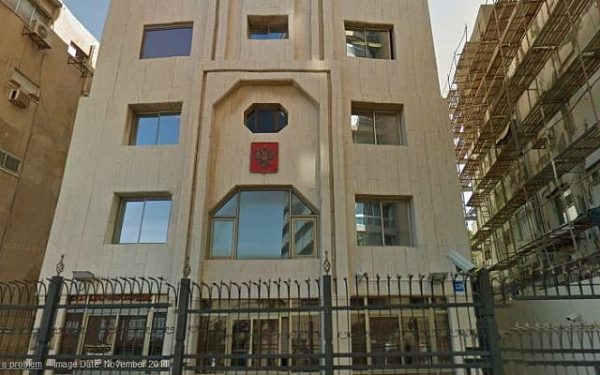
It would appear that Israel has not been intimidated by Russia’s posturing.
On September 20, Netanyahu and Liberman served notice on Russia that the Israeli government will press on with its policy of challenging Iran’s military efforts to establish bases in Syria so as to open a new front against Israel.
“We will act with full force against those who are seeking to kill us,” said Netanyahu. “In the Middle East, those who are trying to kill us are being led by Iran, which openly and aggressively calls for the destruction of Israel.”
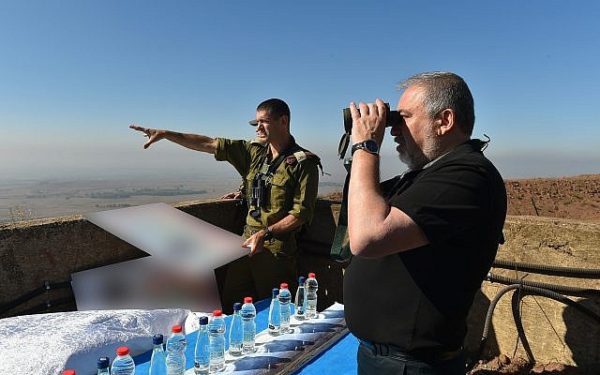
Liberman was just as emphatic: “We will do everything, everything that is required in order to defend the security of Israeli citizens. On this issue we have no other alternative.”
It’s clear, then, that Israel has every intention of enforcing its “red lines” in Syria, though Israel will have to exercise caution to avoid conflict with Russia.
Whether Israel can pull this off without antagonizing Russia any further remains to be seen.
